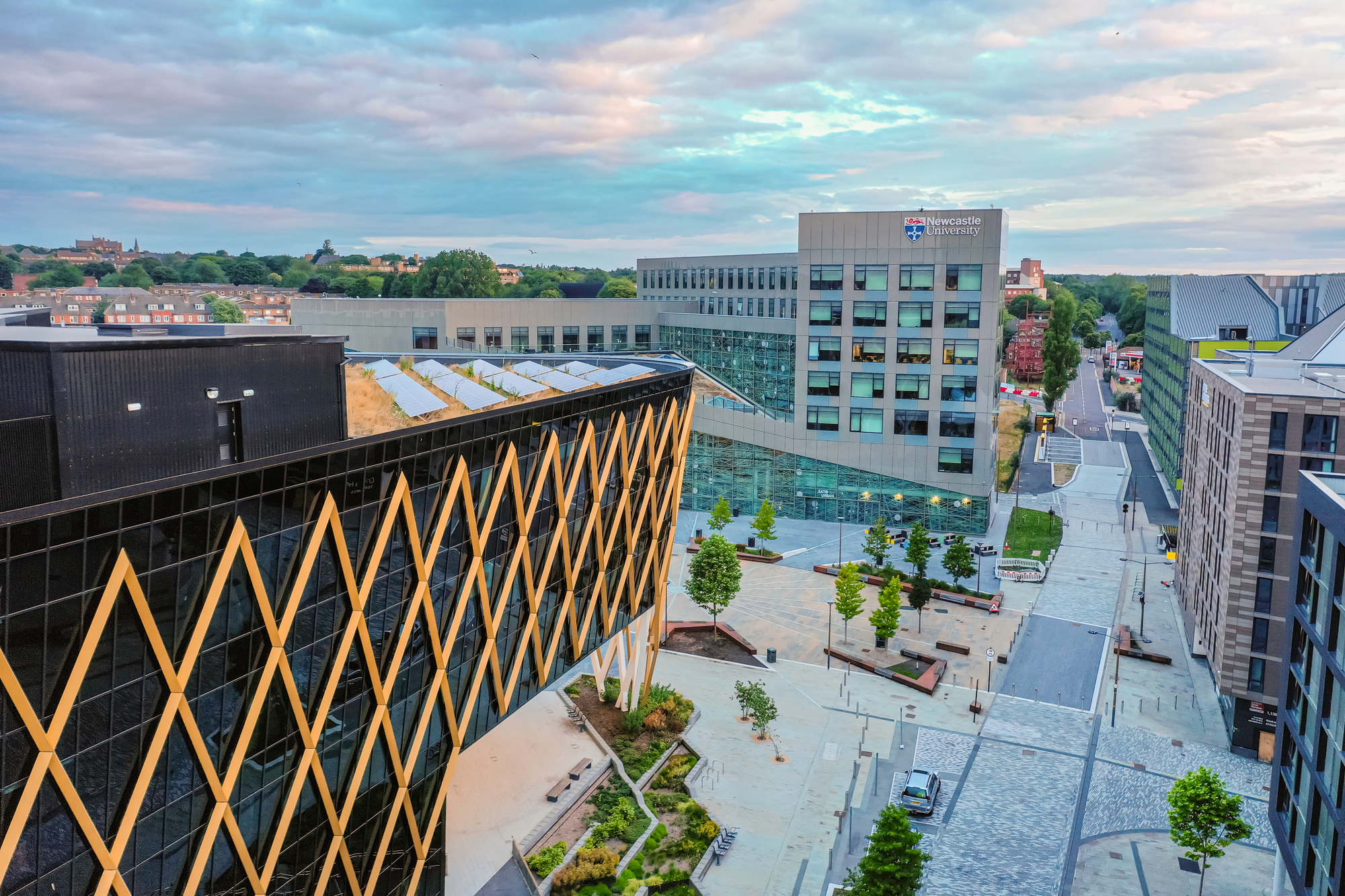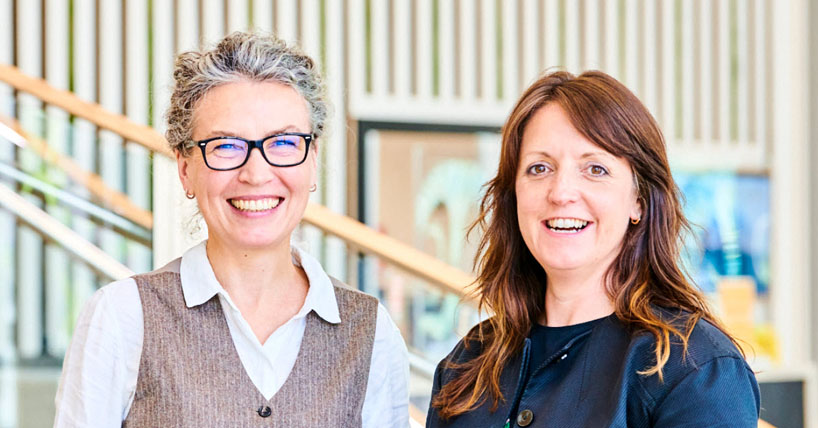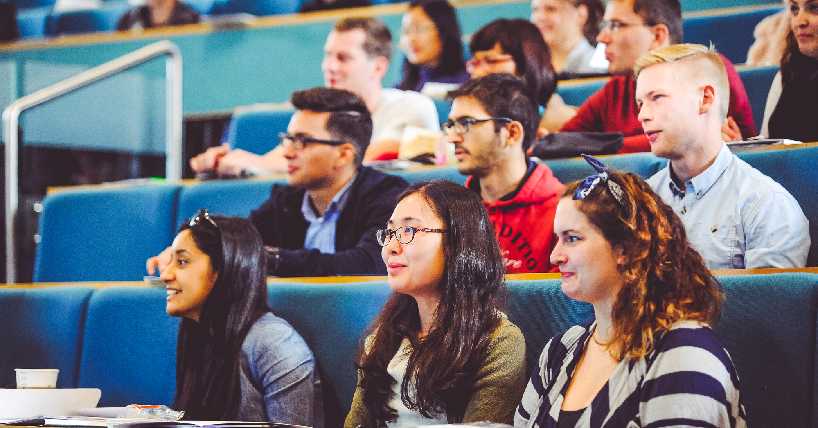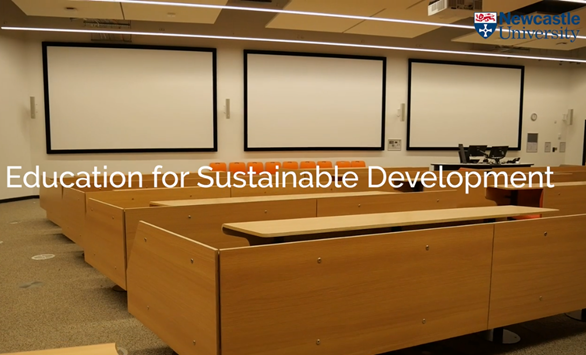Education for Sustainable Development
Creating curriculum structures and subject-relevant content to support sustainable development
NEW: A vision for education and skills at Newcastle University: Education for Life 2030+
What is Education for Sustainable Development?
Education for Sustainable Development (ESD) is an interdisciplinary educational approach that aims to foster the knowledge, skills, values, and attitudes needed to create a sustainable and equitable future for all. ESD allows us to:
- consider how social, economic and environmental issues can be explored critically through active learning pedagogies
- consider curriculum design through the lens of sustainable development
- support students to address world issues
- consider future changes, linking closely to subject / discipline
Definitions
UNESCO (the United Nations Educational, Scientific and Cultural Organization) has played a significant role in promoting Education for Sustainable Development globally, and define it as:
"UNESCO (the United Nations Educational, Scientific and Cultural Organization) has played a significant role in promoting Education for Sustainable Development globally, and define it as: “ESD gives learners of all ages the knowledge, skills, values and agency to address interconnected global challenges including climate change, loss of biodiversity, unsustainable use of resources, and inequality. It empowers learners of all ages to make informed decisions and take individual and collective action to change society and care for the planet. EDS is a lifelong learning process and an integral part of quality education. It enhances the cognitive, socio-emotional and behavioural dimensions of learning and encompasses learning content and outcomes, pedagogy and environment itself” (UNESCO 2023)
Whilst the UNESCO definition highlights biodiversity and climate change, ESD can be integrated within any discipline or subject. AdvanceHE emphasise that ESD and the principles of sustainable development is about trying to achieve a balance between the economy society (people) and the environment through supporting students from any discipline in acquiring knowledge understanding and skills relevant to sustainable development. AdvanceHE provide a useful sector snapshot of what ESD is currently being used for, and why and how to get started with ESD Education for sustainable development | Advance HE (advance-he.ac.uk).
UNESCO’s Berlin Declaration on ESD (2021) sees ESD as a key instrument to achieve the UN's Sustainable Development Goals (SDGs):
“We are confident that Education for Sustainable Development (ESD), anchored in SDG 4.7 and as an enabler for all 17 SDGs, is the foundation for the required transformation, providing everyone with the knowledge, skills, values and attitudes to become change agents for sustainable development. ESD enables learners to develop their cognitive and non-cognitive skills, such as critical thinking and competences for collaboration, problem-solving, coping with complexity and risk, building resilience, thinking systemically and creatively, and empowering them to take responsible action as citizens..." (UNESCO 2021)
Benefits of embedding ESD in the curriculum
Incorporating or expanding the inclusion of ESD within the curriculum and student experience has many advantages for both students and the university. Students are afforded the opportunity to immerse themselves in interdisciplinary practices, collaborating and learning alongside peers from diverse academic backgrounds that they might not typically encounter. This not only enriches their intellectual growth but also aligns with employers' expectations for graduates to collaborate effectively with colleagues and develop key employability skills.
ESD is not about:
- The long-term viability of teaching and learning
- Sustainable institutions
- Student awareness of or inclinations toward sustainability alone
- Exclusively educating about sustainability science
- Encouraging responsible consumption in isolation
The way ESD is designed within the curriculum will depend on the subject area and its pedagogical approach. However, this also offers a great opportunity to work across disciplines to develop innovative future facing ideas.
Mapping SDGs Across the Curriculum
Colleagues in SNES, LTDS and the Library have recently completed a project mapping Sustainable Development Goals across the curriculum to raise awareness of embedding ESD
GET SUST!
SDG Board Game
Newcastle Business School students and colleagues have developed a game-based learning approach to engage Business School students with sustainable development and the UN Sustainable Development Goals
Sustainability Sprints Podcast
Dr Jenny Davidson, co-chair of the Sustainable Development Committee, Senior Lecturer and Climate Change Fellow at Newcastle University collaborates with Sheri-Leigh Miles, Co-Founding Director of NETpositive Futures Ltd and a catalyst for leading-edge sustainability activity; to create Sustainability Sprints. Conversations designed to Fast-Forward your sustainability journey. Helpful to anyone trying to make sense of sustainability, especially in a professional context.
All episodes of the podcast are available on Spotify and via Apple




